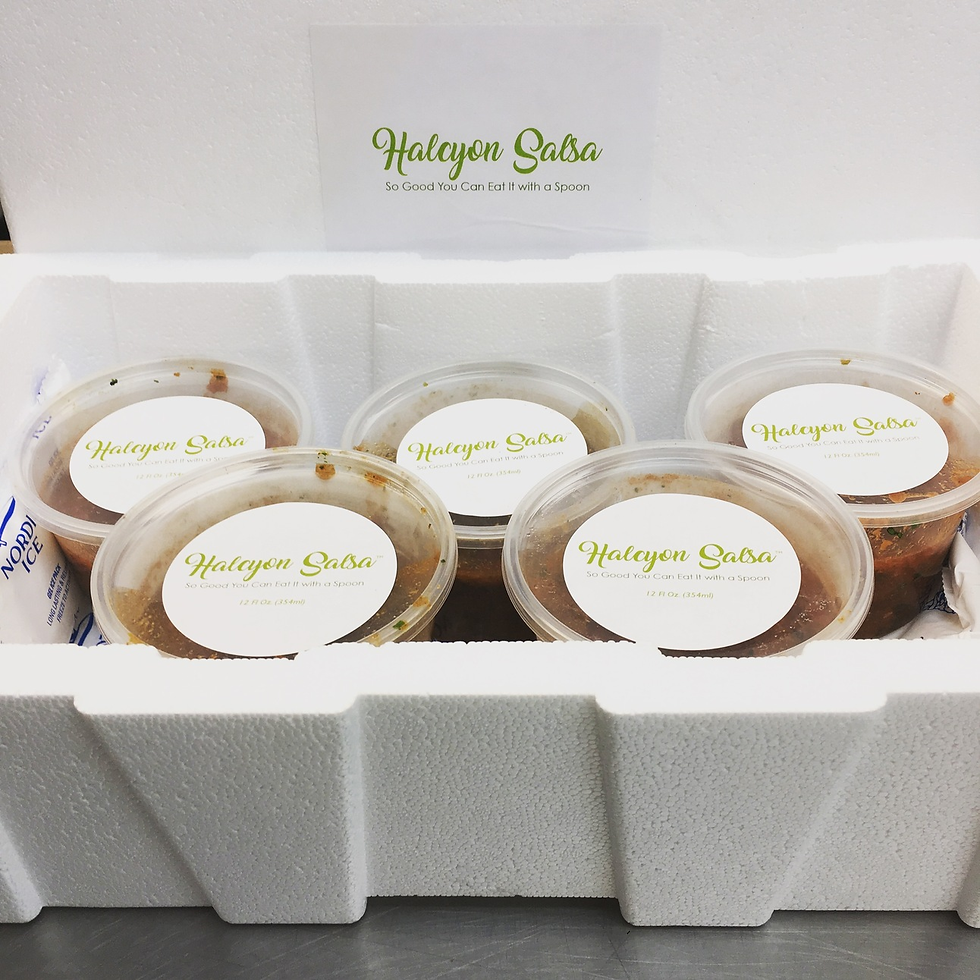Urban Farming Initiative Newsletter #3: From Halcyon Salsa to the Urban Farming Initiative
- Kevin Mackey
- Jul 27, 2024
- 3 min read
It’s January 2018. Super Bowl is coming up. I’m considering a new entrepreneurial endeavor and feedback about my salsa around the holidays that year had been amazing.
“You should be selling this!”
I had considered selling my salsa several years earlier but I got stuck trying to figure out whether I needed certification from the local or state department of health, local or state department of agriculture, the FDA, and a smattering of others. After a bunch of calls to each agency who told me I needed to talk to another agency, I gave up.
But this time around, I had a secret weapon I hadn’t known about so many years earlier: incubator kitchens!
Specifically, the Incubator Kitchen Collective in Covington, Kentucky, helped me get the licensing for Halcyon Salsa to legally sell our products in 13 days, enough time to get our products into the hands of salsa lovers on Super Bowl Sunday that year.
We ended up selling in nine different markets in Cincinnati including the famed Findlay Market in Over-the-Rhine. During the summer of 2018, we sold more than 4,000 units in the greater Cincinnati area. It was a grind that gave me a permanent appreciation for what it takes to succeed in food businesses.
That’s also when I learned how complicated the food system is from the inside. Every day, we worked next to dozens of other farmers and food entrepreneurs in the kitchen or at local farmer’s markets. It was at these farmer’s markets that we learned about others’ experiences and how much time, effort, and waste is involved in the production and sales cycle for these businesses.
Most food entrepreneurs will work 80 - 100 hours per week, but a lot of that work is time spent traveling, doing logistics, working farms, hunting down capital, making deliveries and more. I used to call it “time tetris”, because you only have so many hours in the day and you have to figure out how to make it work.
As the pandemic hit, we conducted a lot of food system research that started the Urban Farming Initiative. We quantified the challenging economics behind a small farming operation and it became clear to us that our farms needed to maximize revenue, minimize waste, and find alternative paths to new products or sales through creative and vertically integrated means.
We believe our entrepreneurial and business experience is transferable to entrepreneurs looking for farming as a new career path, so that’s the type of programming we are building as part of our business. We like how container farming allows for a “place and space” upon which a lot of education and economic activity can occur. It starts with farming and then builds into our community economies!
If you’re starting a food business and you’re looking for mentorship, don’t hesitate to shoot us a note at community@urbanfarminginitiative.org!
CEA + Urban Farming Jobs and Entrepreneurial Opportunities
In each newsletter, we'll feature job openings in the CEA and urban farming sectors. Because we’re central to the Midwest right now, a lot of these opportunities will be near the center of the country, likely in Ohio, as we get started.
Integrated Pest Management, Manager - AppHarvest. Richmond, KY. Full-time. $20 - $28/hr.
Assistant Professor of Controlled Environment Agriculture. University of Connecticut. Full-time.
Agricultural Sciences Program Manager. McCormick & Company. Louisville, KY.
Indoor Farm Technician at 80 Acres. Hamilton, OH. Full-time. Hourly wage.
Food Safety and Quality Assurance Manager. 80 Acres. Hamilton, OH. Full-time. Hourly wage.
If you are looking for work or hiring, reach out to our in-house recruiting team to get some help at recruiting@urbanfarminginitiative.org.
Help Us Fundraise!
$50,000 will help us fund our initial prototype in Cincinnati, build our virtual farmer’s market ordering and procurement system, and hire our first general manager and interns.
$1 million will help us build 20 farms that will extend across Ohio and operate for a year, at which point we will be cashflow positive to sustain our efforts permanently!
Please send introductions or your personal interest to funding@urbanfarminginitiative.org.










Commenti